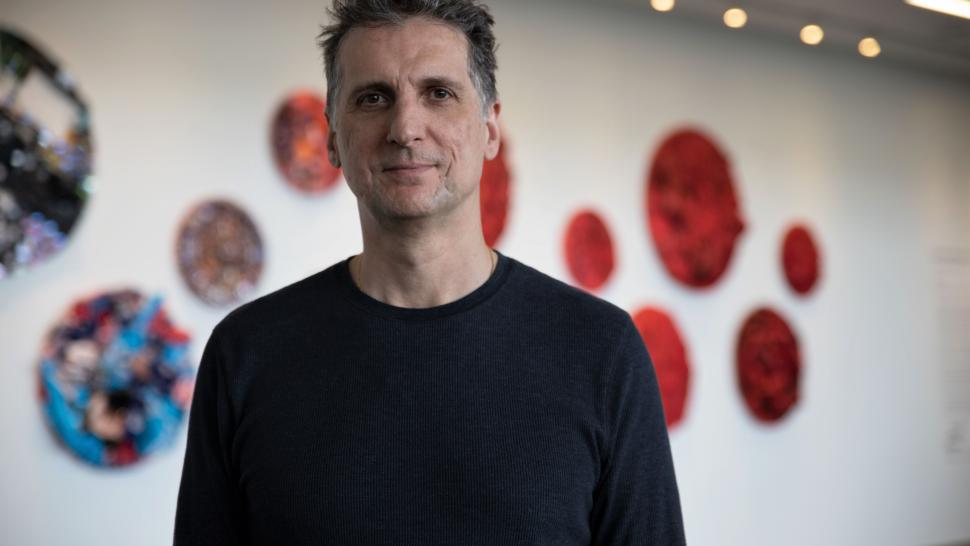
Two full-time Humber College faculty members have worked long and hard to become established in the film world and they credit much of their success to strong professional relationships
“I came up through the business in Toronto and Canada,” Orest Sushko from the Faculty of Media and Creative Arts program, “I met a director named David Cronenberg on the film Crash.
He is a professor and program coordinator of Film & Multiplatform Storytelling at Humber.
Sushko is a re-recording mixer who works in the North American film industry. His role is to take the work of sound editors, music departments, sound effect departments, composers and dialogue editors in order to create a story with sounds, which sets the tone for the film.
“My role is to be the person that is the creative confluence of that.”
He likens it to a cook adding bits to a pot, combining, and mixing.
“You blend all these ingredients to create something that is hopefully not just aesthetically pleasing but has a dramatic sensibility,” he said.
Sushko connected with the famous Canadian director and has worked on Cronenberg’s last seven films.
Sushko has more than a dozen Canadian Screen Awards nominations to his name. His latest nod is for the television series Frontier in the Best Sound, fiction category. The series is set in the 1700s and focusses on the fur trade in Upper Canada.
He was nominated for the episode “The House of the Lord,” with colleagues Janice Ierulli, Matthew Hussey, Clive Turner, John Elliot, Steve Copley and Marco Dolle.
'Approach things with passion'
Sushko’s Humber College colleague, Lara Johnston, is a professor and the program coordinator of the Post Production Graduate Certificate, and she has also received a Canadian Screen Award nomination for a project borne of collaboration.
Johnston, a longtime picture editor, has been chosen as a nominee for the 2020 Achievement in Editing award.
“My job is to put together an initial version of each scene and put all the scenes together,” she said, playing down the importance of an editor to a film.
She is nominated for her work on Mouthpiece, which tells the story of a grieving woman who “breaks into two different people,” Johnston described.
“There’s these two internal voices inside her head that are helping her process her grief.”
The film is based on an original play by Amy Nostbakken and Norah Sadava. Director Patricia Rozema was so taken with the premise and the performance that she collaborated with the duo - who also starred in the play and the film – to write the motion picture script.
Collaboration and inclusivity is part of what drew Johnston to the project.
“Patricia is an amazing human being, incredibly smart, incredibly open to ideas. It was a real gift to work with her,” said Johnston.
The two worked closely. Part of Johnston’s role is to work with the director to to shape the story, move scenes around, and delete others.
“We’re sort of finding the story.”
Johnston and Rozema worked together before Mouthpiece. Johnston was an assistant editor on a made-for-tv movie Rozema directed.
The film wasn’t great but she worked tith enthusiasm.
It paid off 15 years later.
“Approach things with passion, because that’s one of the things many people respond to,” she said. Her most important advice to students is to play the long game. In an industry in flux, it is impossible to predict who may hire or collaborate with you, but it is crucial to build a good reputation and work ethic.
Orest Sushko imparts similar wisdom. He describes his approach as a way of thinking.
“It’s maybe looking at things in a way where disruption is inevitable.”
Students are anxious about jobs, where they fit in, and what their role will be in such an age of disruption.
If they change their perspective, they can use the disruption to their benefit, to change and grow.
For a full list of Humber-affiliated nominees, visit the Advancement and Alumni website.